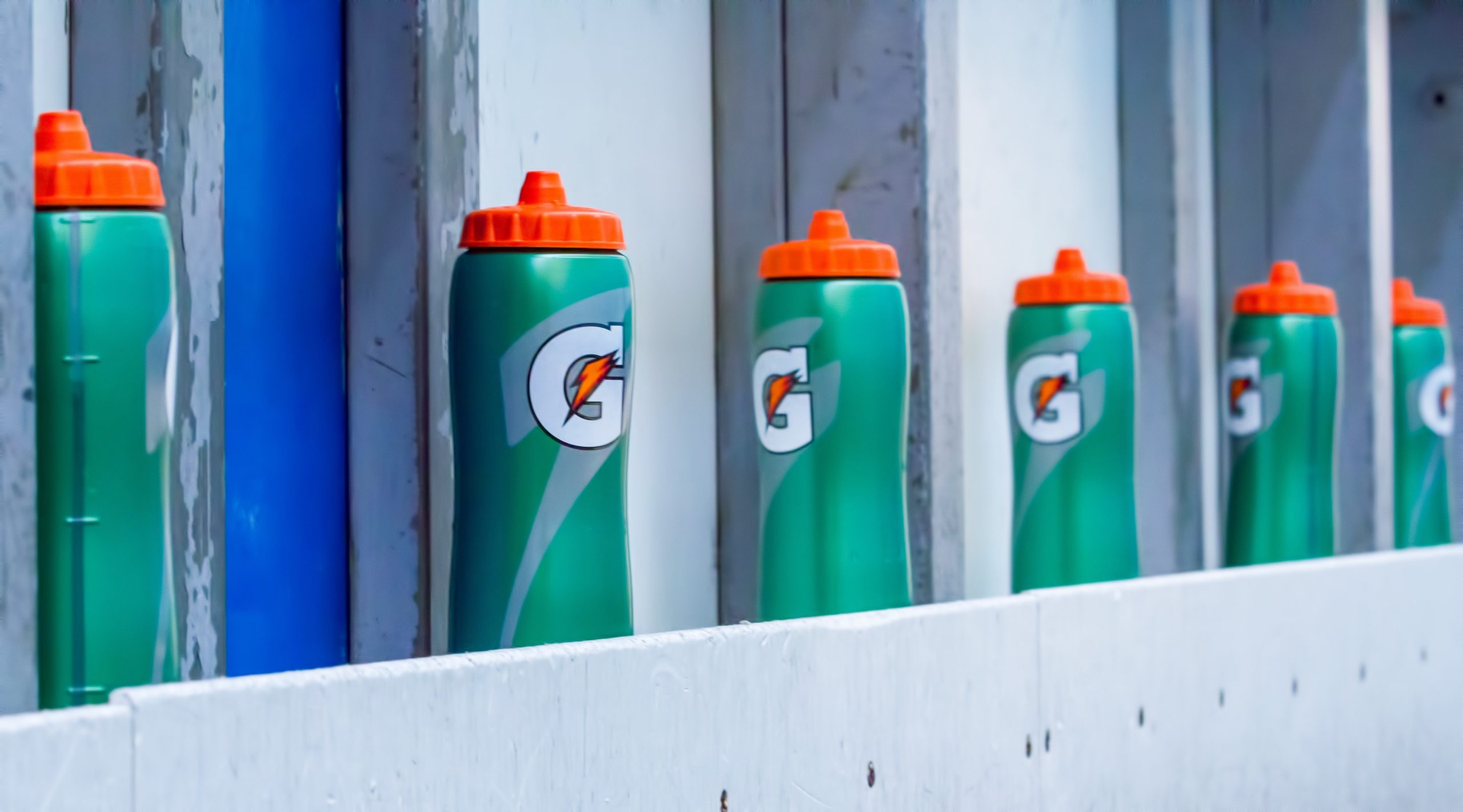Whenever I go to the gym, I’m amazed by the number of people I see chugging large electrolyte drinks, such as Gatorade, while they exercise. Usually, the number can be pretty staggering. I mean, can you truly be a Gator if you haven’t tried every flavor of Gatorade? While electrolyte sports drinks appear to be a brightly colored staple at many gyms, how are they benefiting your body and do they actually work?
Jennifer Bleiweis, who has been a registered dietician for 31 years and is the owner of her private practice Real Foods RD, said sports drinks were designed to replenish electrolytes, mostly sodium, potassium and fluid. “If an individual is sweating heavily, think of exercising in heat or manual labor in heat, then not only is fluid lost but also sodium with it,” Bleiweis said. “Replenishing fluid along with electrolytes helps the individual to rehydrate more efficiently and completely.”
Electrolytes, such as sodium, potassium, chloride, calcium and magnesium, are vital minerals found in your blood, sweat and urine. These minerals are essential in the function of our muscles and nervous system, guaranteeing hydration and maintaining our internal pH levels. “Our bodies go through a complex feedback loop of hormones, which regulates the levels of electrolytes in our blood and tissues,” Bleiweis said. “When we lose electrolytes such as sodium and small amounts of potassium through sweat, urine and stool, we need to replenish our diet.”
What should you drink?
There is an endless supply of commercially sold electrolyte drinks on the market, ranging from those focused more on replenishing after exercise, such as Gatorade and Powerade, to the more kid-friendly Pedialyte. Coconut water has recently become a favorite as well, as the drink is low in sugar but high in sodium, potassium, calcium and magnesium.
“I’m partial to Gatorade, as it has slightly more sodium than Powerade and has varying degrees of carbohydrate so a person can pick the amount that replenishes their need,” Bleiweis said. “So, for instance, if someone was outside in the Florida heat and sweating a lot, but maybe not exercising and needing the extra carbohydrate, then they could choose a lower sugar version and still get the rehydration benefits.”
Bleiweis said there are special sports products that are designed for higher intensity, longer endurance and contain twice the sodium for maximum hydration, but stresses that the use of these should be done with advice of a knowledgeable trainer or sports dietician.
A lot of the foods that we eat are naturally high in electrolytes, such as spinach, dairy, turkey and soybeans, so in most cases, we do not need to add them to our drinks. When doing minimal exercise where you haven’t lost a large amount of sweat, a sports drink might not even be needed. However, when you’re losing a lot of fluids, this is when you would reap the benefits of having extra electrolytes.
“We may also have times that we are more prone to dehydration such as illness, fever, vomiting, diarrhea or spending long hours in a warm temperature and sweat soaking our clothes,” Bleiweis said. “The bottom line is if there is excessive loss of sodium through sweat, illness, or extreme temperature exposure, we will benefit from having electrolytes in the fluids we are consuming to rehydrate.”
Related articles:
Tips For Strength Training As You Age
How Can Being Outdoors Benefit Your Health?

